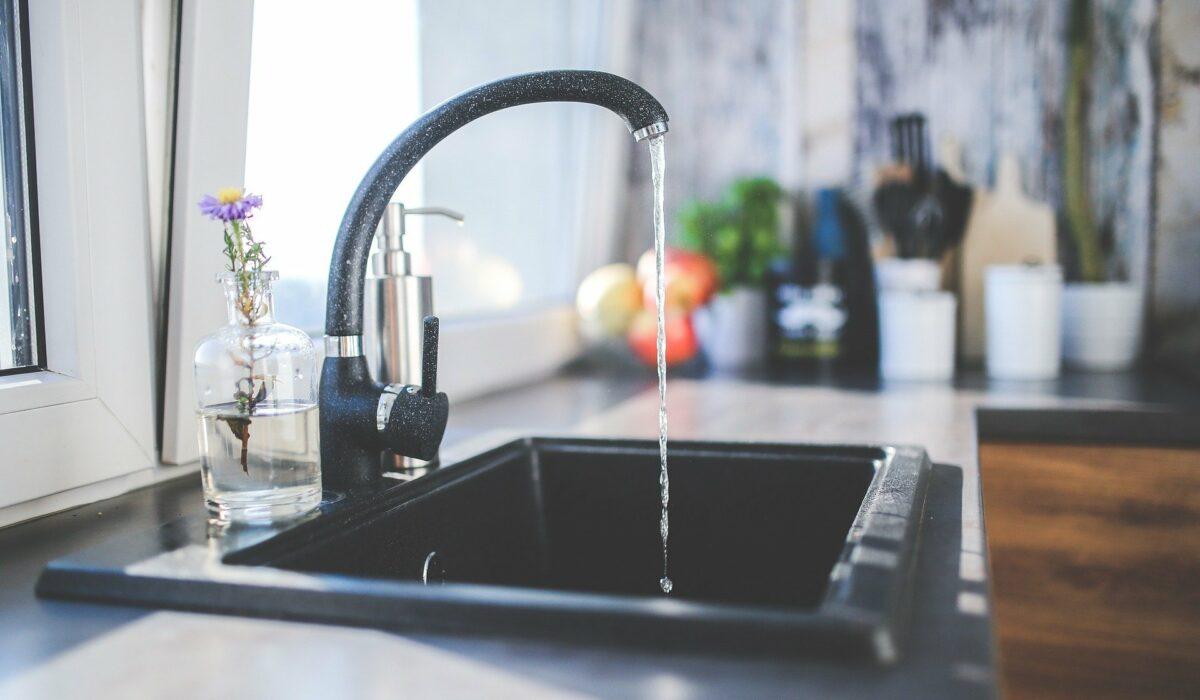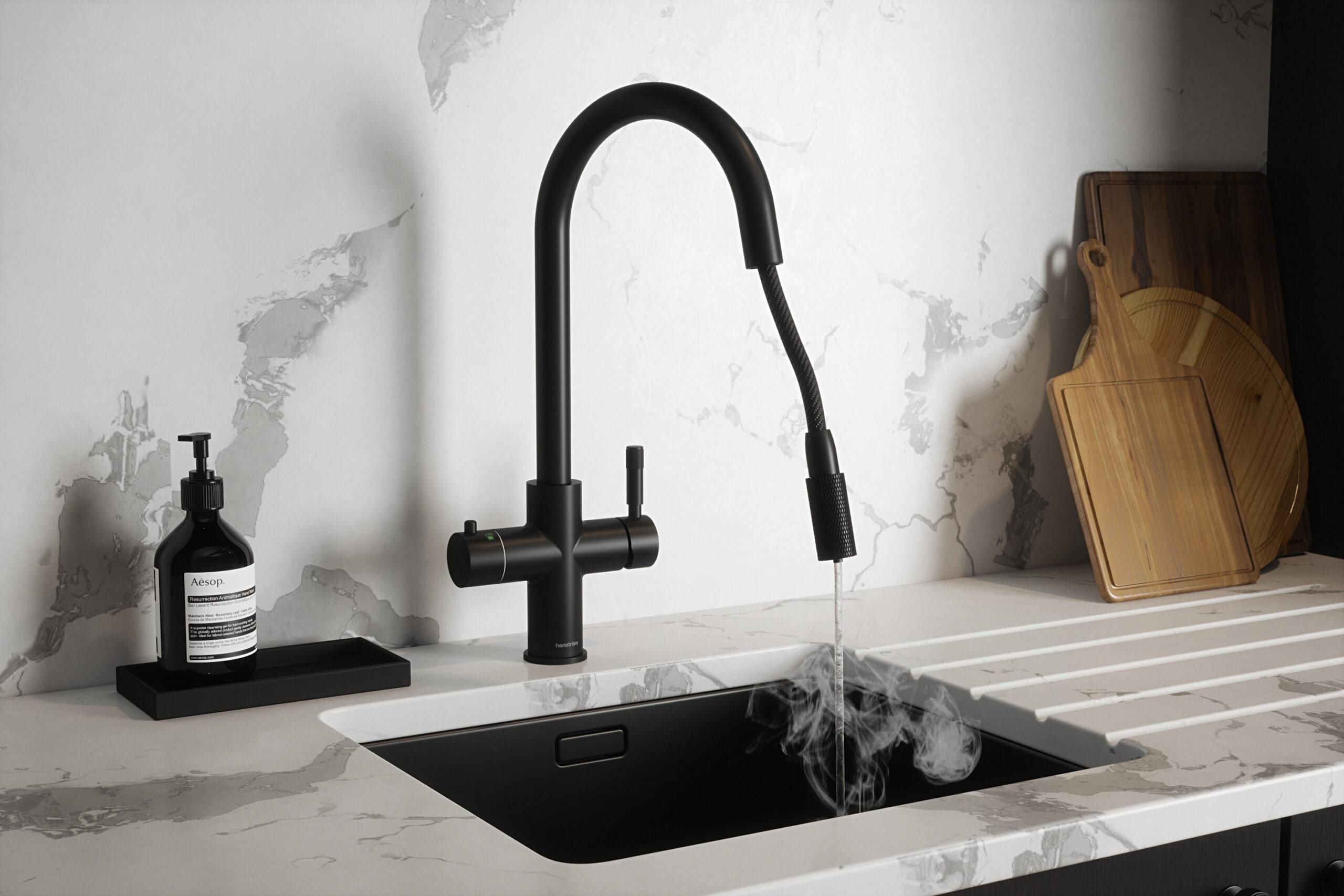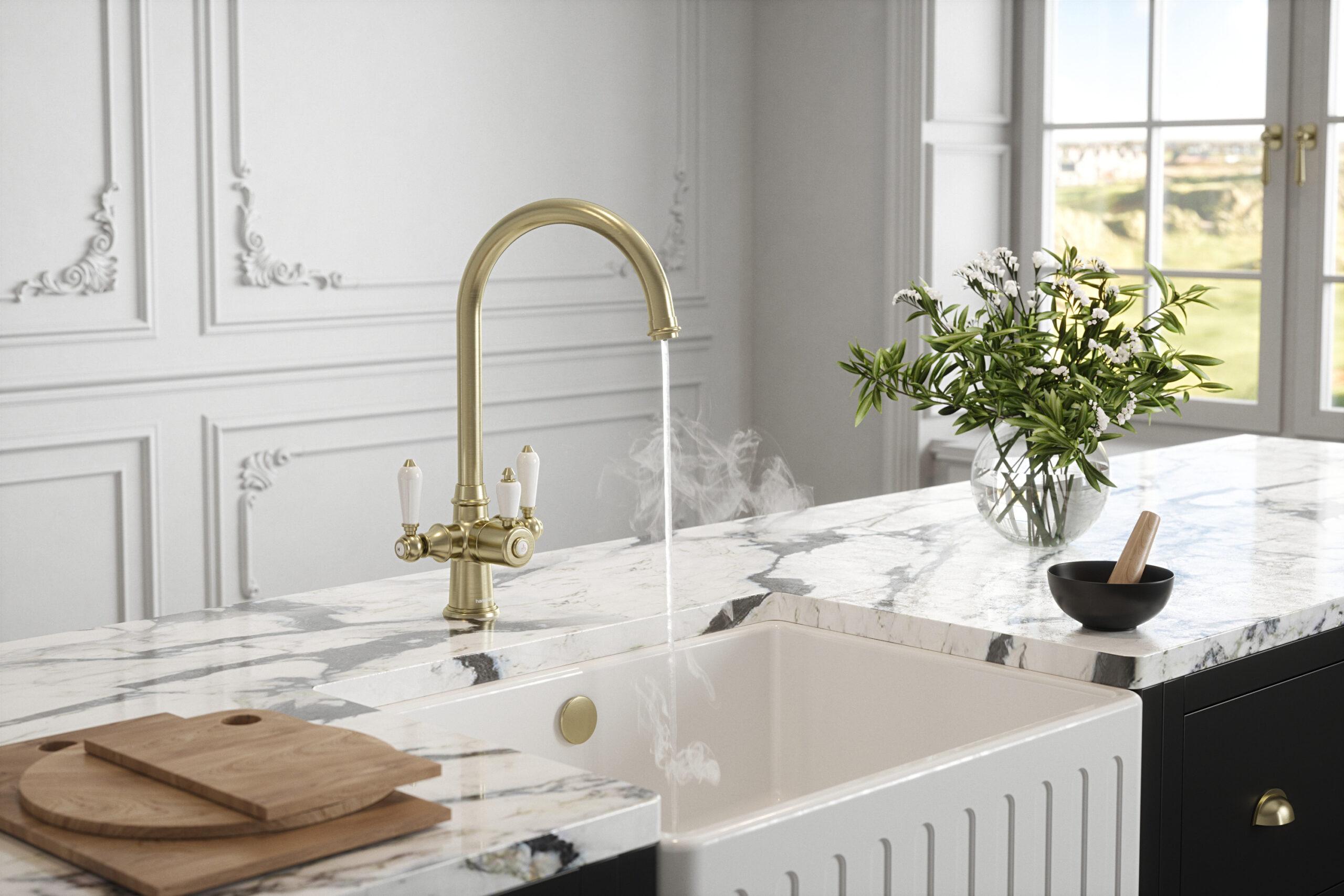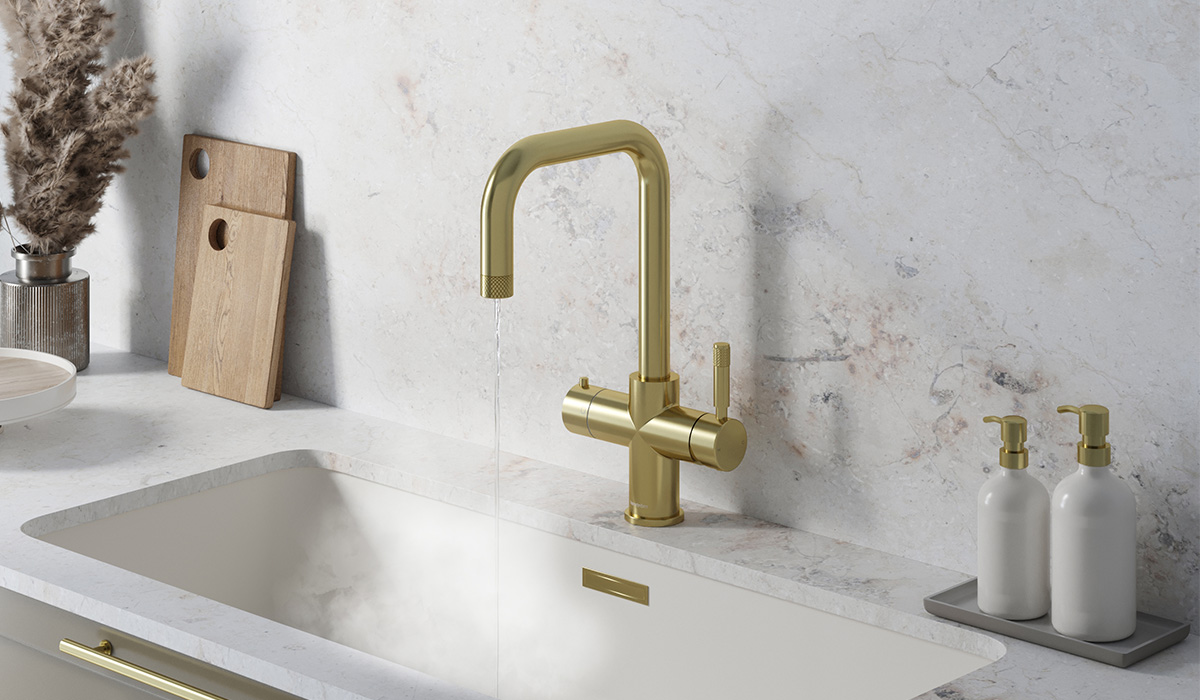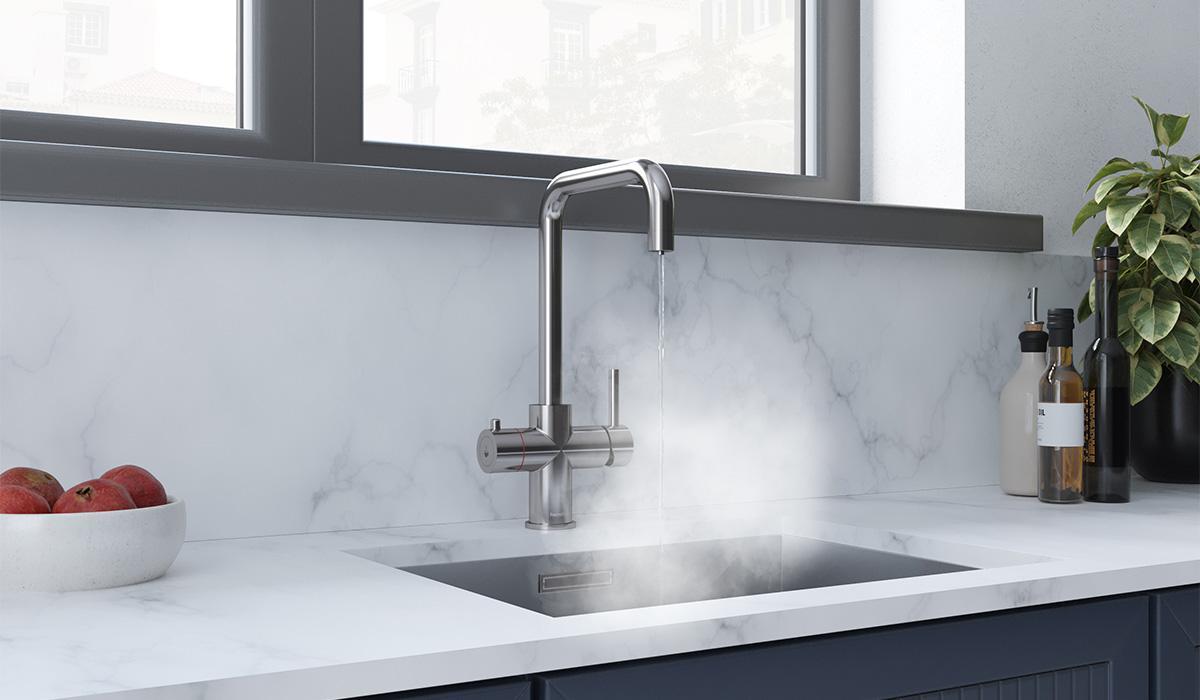When it comes to the kitchen sink, there are a few mistakes that homeowners make regularly. By avoiding these mistakes, you can keep your kitchen sink in good condition and prolong its life. Here are six of the most common mistakes to avoid at your kitchen sink.
1. Pouring oil down your sink
Most of us have, at one time or another, poured oil down the sink after cooking. It is an easy way to get rid of unwanted grease, and it seems like it will just flow right down the drain. Unfortunately, this is one of the worst things you can do for your plumbing. Once the oil hits the water in the pipes, it starts to congeal and form a thick, sticky mess. This can quickly lead to clogged pipes and a big mess to clean up.
Additionally, pouring oil down the sink can cause environmental problems if it reaches waterways. So next time you are tempted to pour oil down the drain, think twice! It is better to dispose of it in a container and throw it in the trash.
2. Pushing food down your sink
You have just finished making a big mess in the kitchen and finally, sit down to enjoy your meal. The last thing you want to do is wash dishes, so you pile everything in the sink and turn on the water, giving it a good push to get it all down the drain. But what you may not realize is that this simple act can cause a big problem.
When food gets pushed down the sink, it can get caught in the pipes and lead to a clogged drain. Over time, this can cause water to back up in the sink or even overflow. And if the clog is severe enough, it can even lead to flooding. So next time you are tempted to push your food down the sink, think twice – it is better to just put it in the trash.
3. Not cleaning your kitchen sink’s drain
A kitchen sink’s drain is one of the dirtiest places in a home. Kitchen sinks see a lot of use every day, and as a result, they can quickly become clogged with food scraps, grease, and other debris. If left uncleaned, this build-up can attract harmful bacteria, insects, and even rodents. In addition, an unclean drain can cause unpleasant odours to waft through your kitchen.
For all of these reasons, it is important to regularly clean your kitchen sink’s drain. The good news is that this does not have to be a difficult or time-consuming task. A simple mixture of vinegar and baking soda can effectively break down build-up, and regular cleaning will help to keep your sink smelling fresh and looking shiny. So do not neglect your kitchen sink’s drain – a little bit of elbow grease can go a long way.
4. Not using boiling water to clear blockages
If your kitchen sink is starting to drain slowly, you might be tempted to reach for a can of chemical drain cleaner. However, this can do more harm than good. Chemical drain cleaners are harsh and can damage your pipes if used too frequently. They can also be dangerous to use, so it is best to avoid them if possible.
One of the best ways to clear a slow-draining sink is to pour a pot of boiling water down the drain. This will help to break up any grease or food that is causing the blockage. If you own a boiling water tap, this task becomes even easier. Simply turn on your boiling water tap for 10 seconds after you’ve done the dishes and cleaned up to flush out any unwanted build-up.
5. Cleaning your sink with an abrasive sponge
You might think that using an abrasive sponge is the best way to clean your sink, but this is a mistake. Abrasive sponges can damage the finish on your sink, making it more susceptible to scratches and stains.
In addition, they can also dull the blades of your knives, making it more difficult to prep food. So what is the best way to clean your sink? Start by wiping it down with a damp cloth to remove any dirt or debris. Then, use a gentle cleaner to scrub away any remaining residue. For tough stains, you can use a non-abrasive cleaner like vinegar or baking soda. By following these simple tips, you can keep your sink looking shiny and new for years to come.
6. Not sealing the sink to your worktop
If you are renovating your kitchen, one detail that is easy to overlook is the seal between your sink and worktop. While it may not seem like a big deal, failing to properly seal the sink can lead to several problems down the road. Water can seep behind the sink and cause the worktop to warp or delaminate.
Additionally, unsealed sinks are much more difficult to keep clean, as dirt and grime can build up in the cracks and crevices. For best results, always use a high-quality sealant when installing a new sink, and be sure to regularly check the sealant for any signs of damage or wear. By taking these simple precautions, you can help ensure that your kitchen stays looking its best for years to come.
FAQs
Can cooked rice clog a sink?
One of the most common questions plumbers get asked is whether cooked rice can clog a sink. The simple answer is: Yes, it can. Rice is composed of starch molecules, which swell when they come into contact with water. When enough rice is poured down the drain, the starch molecules can bind together and form a mass that blocks the drain.
In addition, as the rice cools, it may become sticky and adhere to the sides of the drainpipe, further compounding the problem. If you find yourself with a clogged sink full of cooked rice, the best course of action is to call a professional plumber. They will have the tools and knowledge necessary to clear the blockage without damaging your plumbing.
Can you pour pasta water down the drain?
Have you ever noticed how starchy the water that you boil pasta in is? And have you ever wondered if it is safe to pour this water down the drain? Well, the answer may surprise you. While it is true that pasta water contains a lot of starch, it is also relatively low in nutrients.
As a result, it is not likely to cause any problems for your plumbing. Some people even recommend using pasta water to help clear a clogged drain! However, it is important to use caution when pouring pasta water down the drain. Be sure to wait until the water has cooled and avoid pouring too much at once. By following these simple tips, you can help keep your drains clean and clear.
Can I pour milk down the sink?
As milk is a dairy product, it is often assumed that pouring it down the sink is a surefire way to clog pipes and create an unsightly mess. However, milk is relatively safe to pour down the drain, as long as it is done in moderation.
The main reason milk should not be poured down the drain is that it can cause fatty deposits to build up on the sides of pipes, eventually leading to clogs. However, if water is also poured down the drain regularly, these deposits will be flushed away before they have a chance to harden and cause problems. As long as the milk is not poured down the drain in large quantities or when it is far past its use-by date, it should not cause any significant problems.
Can I pour hot sauce down the drain?
If you have ever made a batch of chilli or another spicy dish, you may have wondered if it is safe to pour the leftover hot sauce down the drain. The short answer is: it depends.
Some hot sauces are made with vinegar, and this can be poured down the drain without damaging your pipes. However, other hot sauces are made with tomato sauce or another type of fruit, and this can cause clogging. If you are not sure what kind of hot sauce you have, it is best to err on the side of caution and throw it away in the trash.
In general, it is always best to avoid pouring fatty or oily substances down the drain, as these can quickly build up and cause problems. So if you are not sure whether your hot sauce is safe to pour down the drain, it is always best to play it safe and throw it in the garbage.
Is it OK to put tea leaves down the sink?
As any tea lover knows, there are many different ways to enjoy a cup of tea. However, once the leaves have been steeped, what should you do with them? Some people recommend composting used tea leaves, while others say that it is fine to put them down the sink. So, which is the right choice?
Tea leaves can be beneficial for your drains and sewage system. The leaves help to break down grease and other organic matter, making it easier for water to flow through the pipes. In addition, the nutrients in tea leaves can help to encourage the growth of good bacteria in your drainage system. As a result, putting used tea leaves down the sink is generally considered to be OK.
Of course, there are some exceptions. If your drains are already clogged or slow-running, adding more organic matter is likely to make the problem worse. In addition, if you live in an area with hard water, the minerals in the water may build up on the inside of your pipes, eventually causing a blockage. For these reasons, it is always best to check with your local plumber before putting used tea leaves down the drain.
Can scrambled eggs go down the drain?
As any cook knows, eggs are a versatile ingredient that can be used in a variety of dishes. Scrambled eggs are a breakfast staple, but they can also be used in omelettes, quiches, and casseroles. However, when it comes to cleaning up after cooking, many people are unsure of whether scrambled eggs can go down the drain. The answer is no, for a few reasons:
First, when eggs are cooked, they coagulate and form a solid mass. This can quickly lead to clogs in your drains and pipes. In addition, as eggs cool, they can stick to the sides of pipes and harden, making it even more difficult for water to flow through. For these reasons, it is always best to dispose of cooked eggs in the bin, rather than trying to wash them down the drain.
Is it OK to put yoghurt down the sink?
If you have ever had a clogged sink, you know the frustration of trying to clear it out. Often, the culprit is a build-up of grease and food particles. We don’t recommend pouring large quantities of yoghurt down your sink, however a small amount is unlikely to do any harm.
Yoghurt is a dairy product, and like milk, it can quickly thicken and clog pipes. In addition, the live and active cultures in yoghurt can create an ideal environment for bacteria to grow. If your yoghurt contains other foods such as granola or fruit, we recommend pouring it into the bin rather than your sink, as you may cause blockages.
Conclusion
Take care of your kitchen sink and it will take care of you. Avoid making these six mistakes to keep your sink in good condition and functioning properly. By following our tips, you can prolong the life of your kitchen sink and keep it looking great for years to come! Have you made any of these mistakes when cleaning or caring for your kitchen sink?
Our boiling water taps make cooking and cleaning easier than ever. Dive into our full range or learn more about how a boiling water tap works.
